
Kód: 04520671
Trust and Democratic Transition in Post-Communist Europe
Autor Ivana Markova
These ten essays are concerned with theoretical and empirical analyses of trust and distrust in post-Communist Europe after the collapse of the Soviet bloc in 1989. The contributors come from different disciplines, ranging from hi ... celý popis
- Jazyk:
 Angličtina
Angličtina - Väzba: Pevná
- Počet strán: 232
Nakladateľ: Oxford University Press, 2004
- Viac informácií o knihe

94.52 €
Dostupnosť:
50 % šanca Máme informáciu, že by titul mohol byť dostupný. Na základe vašej objednávky sa ho pokúsime do 6 týždňov zabezpečiť.
Máme informáciu, že by titul mohol byť dostupný. Na základe vašej objednávky sa ho pokúsime do 6 týždňov zabezpečiť.Prehľadáme celý svet
Mohlo by sa vám tiež páčiť
Darujte túto knihu ešte dnes
- Objednajte knihu a vyberte Zaslať ako darček.
- Obratom obdržíte darovací poukaz na knihu, ktorý môžete ihneď odovzdať obdarovanému.
- Knihu zašleme na adresu obdarovaného, o nič sa nestaráte.
Informovať o naskladnení knihy
Zadajte do formulára e-mailovú adresu a akonáhle knihu naskladníme, zašleme vám o tom správu. Postrážime všetko za vás.
Viac informácií o knihe Trust and Democratic Transition in Post-Communist Europe
Nákupom získate 234 bodov
 Anotácia knihy
Anotácia knihy
These ten essays are concerned with theoretical and empirical analyses of trust and distrust in post-Communist Europe after the collapse of the Soviet bloc in 1989. The contributors come from different disciplines, ranging from history, economics and political science to social psychology and sociology. They are all specialists on the countries about which they write, and they show above all that the Soviet 'bloc' was in fact a rich spectrum of different countries with diverse histories, cultures and traditions, and - not surprisingly - with different expectations for the future. Like other social concepts, trust never makes sense in isolation but only within the network of other concepts - in this case, social capital, faith, belief, solidarity, reciprocity and security. 'Trust' is a highly polysemic term. Differences between meanings of trust in countries with democratic traditions and in post-totalitarian countries raise questions about the ways in which history, culture and social psychology shape the nature and development of political phenomena. These questions include: antinomies such as trust versus risk, and trust versus fear; the co-existence of rural and urban systems; legitimacy of different political regimes; and the arbitrariness of decisions and the abuse of common sense in totalitarianism. The transition period in many post-Communist countries has now been completed and in others it is likely to be completed in the near future. Yet the authors show that while political and economic changes can have rapid effects, cultural and psychological changes may linger and influence the quality of political trust and representations of democracy. As post-Communist countries become members of the European Union, many problems discussed in this book will recede into history. Yet the theoretical issues addressed by the authors, such as the interdependence of politics, culture and human psychology, will remain central to current and future concerns in social and human sciences.
 Parametre knihy
Parametre knihy
Zaradenie knihy Knihy po anglicky Humanities History Regional & national history
94.52 €
- Celý názov: Trust and Democratic Transition in Post-Communist Europe
- Autor: Ivana Markova
- Jazyk:
 Angličtina
Angličtina - Väzba: Pevná
- Počet strán: 232
- EAN: 9780197263136
- ISBN: 0197263135
- ID: 04520671
- Nakladateľ: Oxford University Press
- Hmotnosť: 555 g
- Rozmery: 243 × 164 × 25 mm
- Dátum vydania: 01. August 2004
Obľúbené z iného súdka
-

Hundred Years' War on Palestine
12.06 € -24 % -

Decline and Fall of the Roman Empire
5.92 € -21 % -

Citizens
21.99 € -23 % -

Strange Death of Europe
16.56 € -23 % -

Londoners
11.24 € -25 % -

History of Japan
16.46 € -18 % -

Secret History
12.27 € -23 % -

Ninja, The Secret History of Ninjutsu
15.34 € -16 % -

In The Garden of Beasts
12.16 € -21 % -

Polish Saber
62.80 € -

Wages of Destruction
21.99 € -23 % -
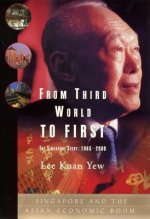
From Third World to First
31.81 € -23 % -
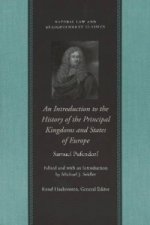
Introduction to the History of the Principal Kingdoms & States of Europe
17.18 € -

Covering Islam
17.38 € -5 % -

Voices of the Foreign Legion
17.38 € -5 % -

Maurice's Strategikon
30.58 € -2 % -

Becoming Indian
39.58 € -

Napoleon's Master
24.85 € -13 % -

Blind Mans Bluff
12.27 € -23 % -

Penguin Historical Atlas of Ancient Egypt
18.51 € -21 % -

Life on the Mississippi
12.27 € -20 % -

Middle Byzantine Historians
214.42 € -
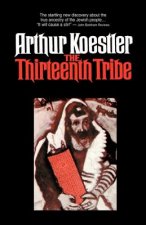
Thirteenth Tribe
16.87 € -

Anatomy of the Nuremberg Trials
17.59 € -3 % -

Modern France: A Very Short Introduction
9.40 € -34 % -

Twilight of the Romanovs
38.15 € -23 % -

Ethnic Cleansing of Palestine
14.41 € -23 % -

Ten Myths About Israel
13.60 € -14 % -

Palestine
20.25 € -20 % -

Giza Power Plant
16.05 € -16 % -

The Secret Diaries Of Miss Anne Lister: Vol. 1
13.60 € -14 % -
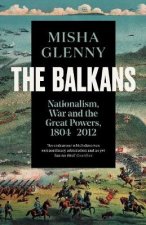
The Balkans, 1804-2012
21.99 € -23 % -

Age Of Revolution
16.56 € -23 % -

The Thirteenth Tribe
12.68 € -

Millennium
13.19 € -22 % -

Alexiad
17.79 € -20 % -
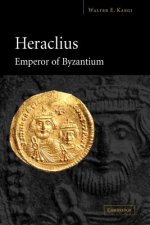
Heraclius, Emperor of Byzantium
33.34 € -18 % -

1948
24.65 € -10 % -
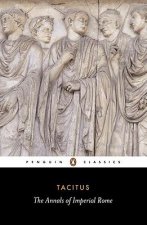
Annals of Imperial Rome
14.41 € -23 % -

Women Who Shaped Politics
24.85 € -13 % -

Strike and Hold
29.96 € -3 % -

Diana: Her True Story - In Her Own Words
11.04 € -23 % -

How to be a Victorian
14.41 € -23 % -

The Oxford History of Ancient Egypt
15.44 € -23 % -
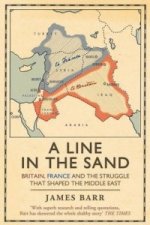
Line in the Sand
11.75 € -6 % -
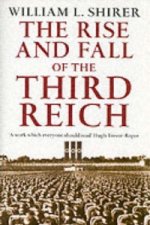
Rise And Fall Of The Third Reich
21.99 € -23 % -

Illustrated Encyclopedia of Uniforms of the American War of Independence
21.99 € -23 % -

Olympic, Titanic, Britannic
30.27 € -15 % -

Medieval Monsters
11.14 € -23 %
Osobný odber Bratislava a 2642 dalších
Copyright ©2008-24 najlacnejsie-knihy.sk Všetky práva vyhradenéSúkromieCookies




 21 miliónov titulov
21 miliónov titulov Vrátenie do mesiaca
Vrátenie do mesiaca 02/210 210 99 (8-15.30h)
02/210 210 99 (8-15.30h)